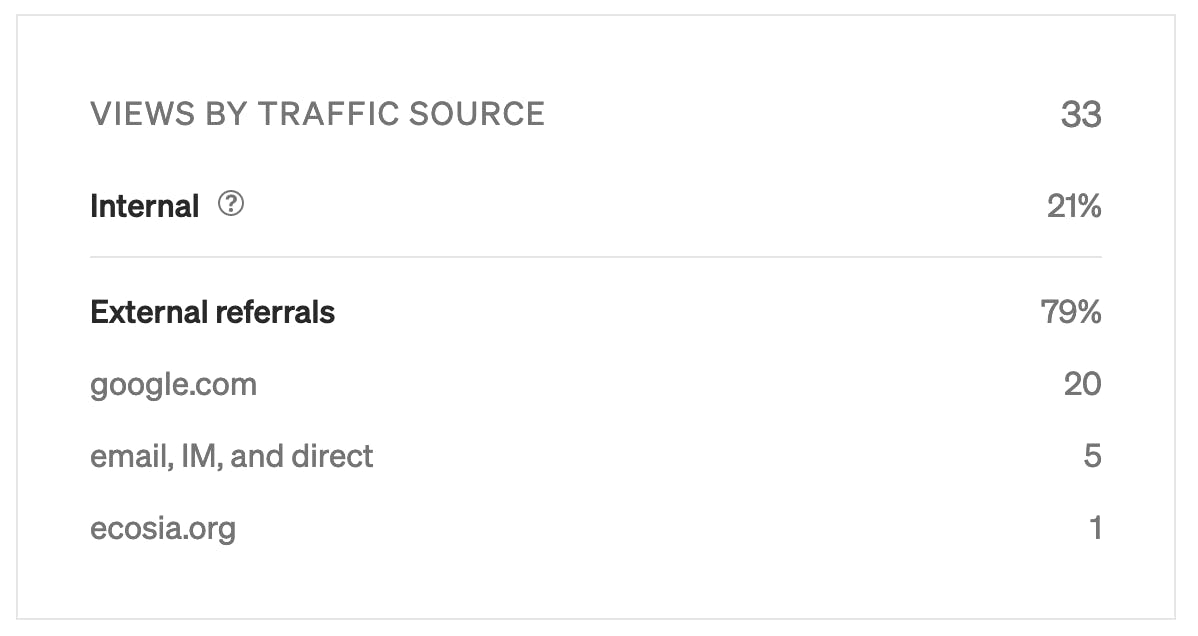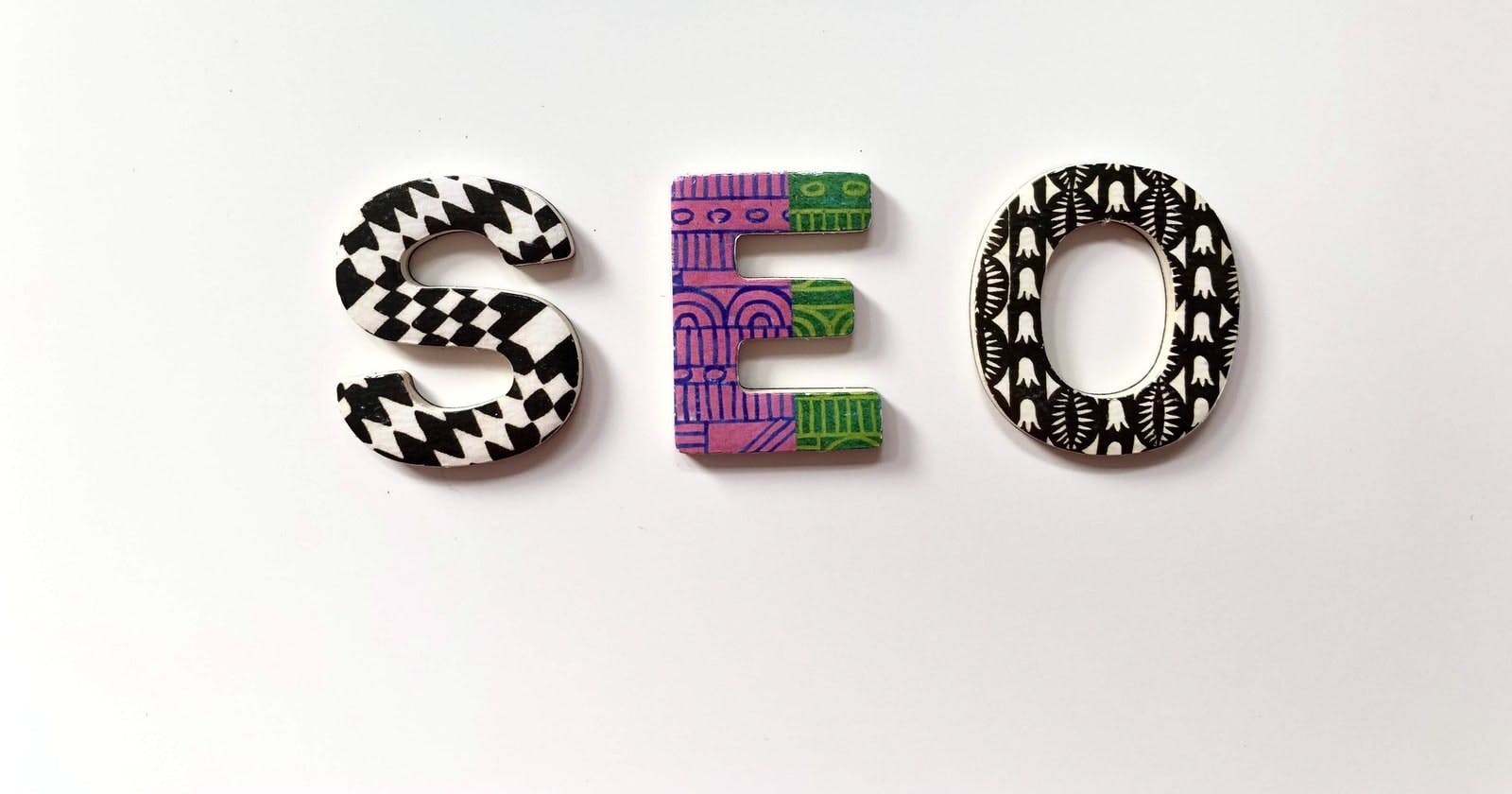SEO for Medium writers: get more views on your articles!
Table of contents
To make money on Medium, you need people to come to your articles and read them. You are not alone, and your articles are like droplets in the ocean of daily published works.
But what if you could get more views on your articles without publishing more or spending hours networking (which is always a good idea, though!).
Good news, you can!
The solution is to get people directly from Google (or other search engines). I will show you in this article how to do that by teaching you the basics of SEO for Medium.
What is SEO?
SEO stands for Search Engine Optimization. It is the set of strategies and tactics to optimize your website and its content for getting more traffic from search engines (that is mostly Google, but also Bing or Yahoo, for example).
Why should you care? Because this source of traffic is pure gold (hence the fierce competition to rank web pages higher on Google search results, well, the first page actually).
It comes from people with a high intent to find a solution to a problem, an answer to a question. As a business owner, for you, it means money because you are here to provide this solution to those people in exchange for some cash.
Benefits of learning SEO as a writer
SEO is the highest return-on-interest marketing activity (and skill) you can develop. You can learn today and get the benefits short and long-term.
In the short term, if you freelance, you can raise your rates by offering this highly demanded skill.
In the long term, you can get organic traffic (for free) to your articles on Medium (or your blog) and make more money.
It is one of those investments that pay off immensely if you are consistent.
How to gain more readers (and higher income) using SEO on Medium
SEO works on Medium. I got more views from Google on one of my articles than any other source.

And this happened without using all I will teach you here. The proof that it works and that you can get even better results than I did!
Here are the steps you want to follow for maximum results.
Topic/Keyword research
You first need to understand what your audience is looking for and how they formulate their search query.
You can know this using a few approaches.
The classical advice you'll get from SEO experts is to use a keyword research tool such as SEMrush, Ahrefs, or SE Rankings (the one I use).
They indeed give you a lot of helpful information. But they can be expensive, and it is unnecessary if you don't aim to sell SEO services or develop a whole content marketing strategy.
- You can use Google directly to find the queries people type to find information about your topic.
- You can browse posts on social media
- You can explore Reddit and Quora to read what people discuss and the questions they often have in mind.
I like to use free tools such as Ubersuggest to check quickly a keyword. There are limitations with the free access option, but it is helpful.
Optimize the title
Titles for social platforms such as Medium are pretty different from titles for SEO.
On Medium, you play on the discoverability of your articles. You use techniques that make the reader wants to click on the title and read.
For SEO, you are more limited in your creativity. You need to include the focus keyword at the beginning of the article so that people searching for that keyword know that it is about the topic they're interested in.
Write long-form (but not always)
It is already a "rule" on Medium to get your articles considered for a publication. For SEO, there is a trend for long-form articles (sometimes 10,000 words) to rank higher.
It is not a rule, though, since many factors are involved in how well a page ranks on Google.
How long should your articles be?
The typical length of an SEO article is between 1000 and 3000 words. The extremes can range from 300 words to 15000 words.
That's a significant difference.
The rule is that the article should be as long as necessary to answer the search intent best.
I know it is vague, but it depends on the topic, and the particular question people want an answer for.
Keep it relevant
Please, don't do what I often see online where writers add extra sections not directly related to the search query.
For example, I see review articles (one of the most common types of SEO articles) reviewing a product and then including a tutorial on the product or software. I am sorry, but this is not what people want. They want to make a choice, not learn how to use a product. Maybe later on in their research, they will want to get a taste of how to use it to make the final decision, but, in my opinion, this should be a separate article.
Thus my recommendation is that if you have more ideas related to the topic but that are not directly answering the query, it is better to write another article and, if relevant, to add a link to it from the article you are writing.
On-Page SEO
Medium takes care of other SEO aspects (technical, off-site, etc...) so you can focus on your on-page SEO.
It is not very complicated.
On-page SEO aims to help the reader and Google understand what your article is about.
Let's say you are writing an article on what is the best dry food for cats. You have to make it clear from the title to the conclusion that you write about this particular topic.
From the first paragraph, readers should be sure that you will help them choose the best dry food for their cat.
Simple, right?
WARNING: you will still see people talking about keyword density and how often you should include your exact keyword in the article. This is not how it works anymore. Don't bother about that.
Write naturally, and just be sure you are on point and don't drift away.
There are still a few rules that help ranking regarding the focus keyword.
Use it:
- in the SEO title (at the beginning)
- in the URL
- in the meta description
- at the beginning of the article (100 first words)
- in one subheading (H2)
This is to ensure your article is relevant and easily recognized by readers and search engines.
Let's take for example the article I mentioned earlier that gets most of its views from Google.
Here is the title:

Then, the first paragraph:

You see that I use my focus keyword "cultivate clarity."
The same in the first subheading:

Also in the SEO title setting of the Story:

In that case, I use the same title as the Medium title because I think that it works ok for both. I may find a better Medium title, though.
And the same (or almost) in the meta-description:

I used a variation about the same topic.
This is fine because both the readers, and now Google, are intelligent enough to understand it is about the same topic.
Quick win
You can quickly improve your SEO and get quick wins by optimizing your SEO titles and meta-description.
Image SEO
You can go further and do some optimization on your images.
Quite simple, but better do it before publishing.
It starts with the filename.
Avoid names such as IMG234520.jpg. Use your focus keyword in the filename.
Another common practice is to use the keyword in the alt text of at least one of the images. However, the function of alt text is to improve the accessibility of your content. Please don't stuff keywords so that the alt text becomes useless for people with disabilities.
Keep readers on the page
If you want to go the extra mile to boost your Medium SEO, you can add media to retain your reader for longer.
Include more images will make it more pleasant and keep readers engaged with your article if relevant.
The next level is to embed videos. Think about it. People will spend 5 or 10 minutes on your article just to watch the video if it is carefully chosen.
And the more people stay, the better for SEO. Google will see your page as highly appreciated by users since they spend so much time reading it.
All these tips should always be beneficial for the reader first.
Search engines aim to make their users happy by giving them the best results. Make your article the best result they can get.
Conclusion
SEO can be complex, but you can benefit from it quickly and easily by implementing what I teach in this article.
Keep the optimization of your articles natural. You are writing for humans, not robots!
There are more things you can do to boost your visibility on Google (and on Medium), but this will be for another time.
Follow me if you don't want to miss the next part: how to link your articles to improve your SEO and number of views.

